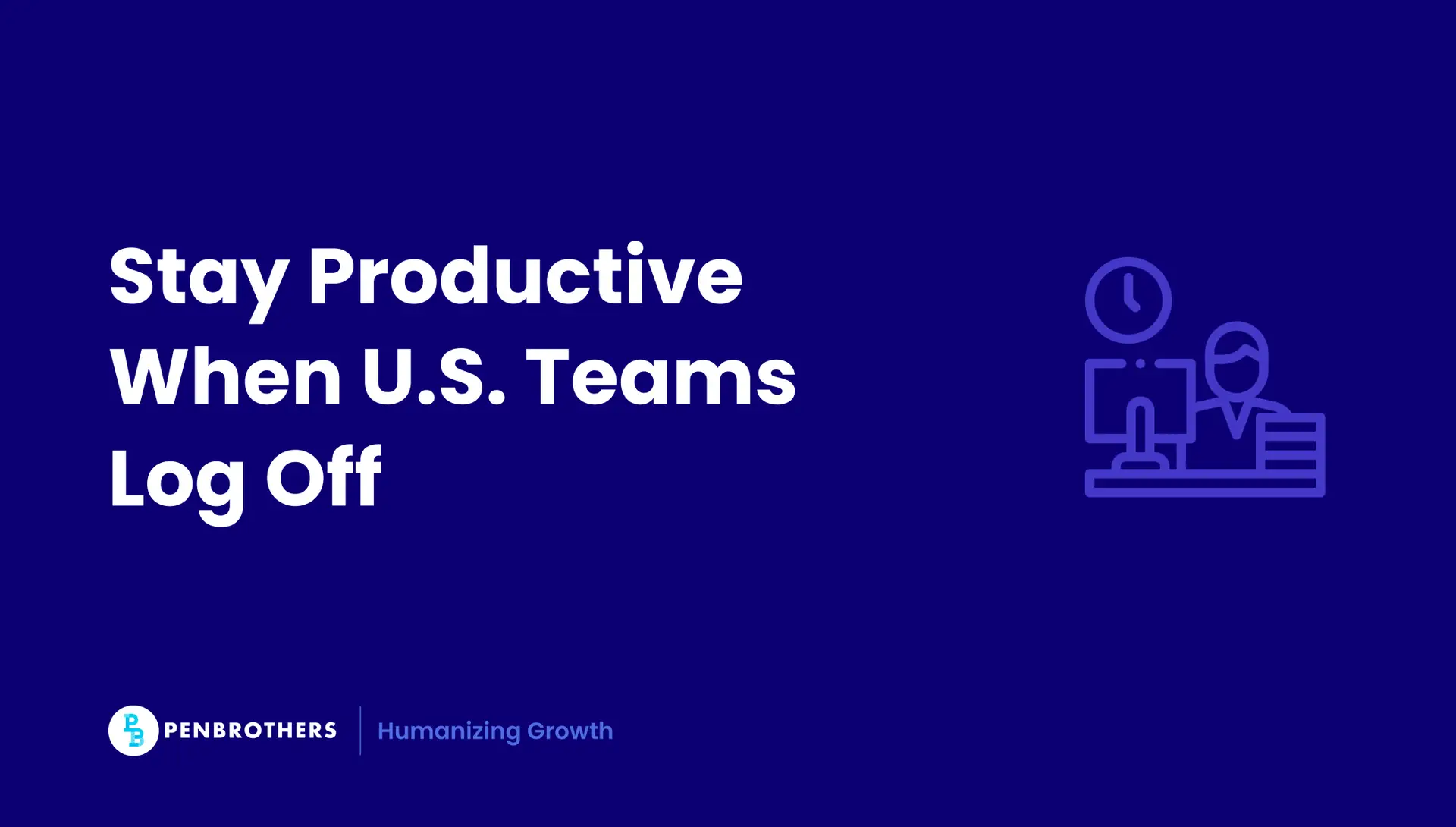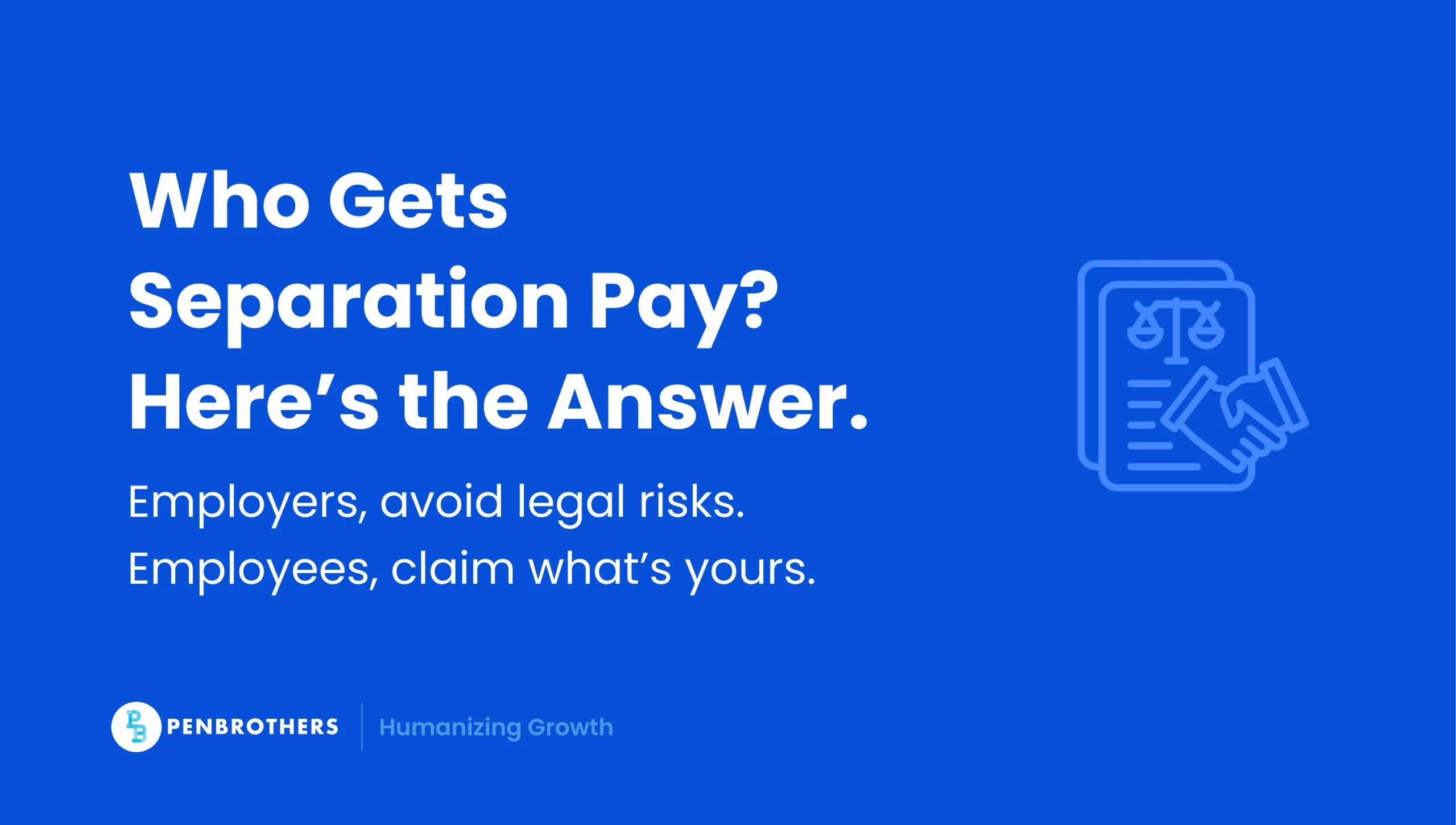What's Inside?
How Founders Keep Business Running During Thanksgiving Downtime

Key Takeaways
- Anticipate slowdowns early. Include holiday weeks in your planning calendar.
- Automate repetitive tasks. Let technology handle what doesn’t need human touch.
- Delegate clearly. Define backups and escalation points.
- Leverage offshore capacity. Keep operations live while U.S. offices rest.
- Use downtime for strategy. Reflect, plan, and reset leadership direction.
Thanksgiving 2025 brings gratitude and gaps. While most teams log off, founders face a familiar challenge: keeping business steady when everyone else is away. Responses slow, deals stall, and customer expectations stay high. Investors still expect updates, and support requests don’t pause.
To plan smarter around these cycles, see our U.S. Holidays 2025 Guide for Remote Teams. Here’s your survival guide to keeping momentum through Thanksgiving downtime.
The Thanksgiving Slowdown: What Really Happens
When the turkey’s carved and the out-of-office replies start piling up, the slowdown becomes real. Here’s what typically happens inside growth companies during Thanksgiving week:
Fewer client responses. Prospects and partners are away, which can freeze your sales pipeline. Alex Iskold from Startup Hacks warns that even small communication delays ripple through operations, leading to a “December bottleneck” that drags into Q1.
Decision-makers unavailable. Approvals, budgets, and vendor sign-offs get stuck while executives disconnect. What should be a two-day decision suddenly becomes two weeks.
Founder burnout. Many founders try to “fill the gap” themselves, stretching thin across roles. Startups.com notes that founders who don’t plan for downtime often experience post-holiday burnout, slower, not stronger, when business resumes.
Thanksgiving downtime is predictable. The real question is: how will you prepare for it next time?
Why Downtime Doesn’t Mean Standstill
It’s tempting to equate “quiet inbox” with “lost productivity,” but data shows the opposite. According to Entrepreneur.com’s Downtime Drives Success, Even for Top Founders, scheduled rest fuels long-term creativity and sharper decision-making.
Thanksgiving can be your annual “reset window.” Use it to:
- Reflect on whether your current goals, growth pace, and resource allocation still align with your long-term mission.
- Revisit your systems, automation tools, and hiring plans to see what must evolve to support 2026’s growth targets.
- Recharge your focus and energy. Many breakthrough ideas, new offers, improved workflows, or leadership shifts, come during moments of rest, not while grinding through endless tasks.
Strategic pauses aren’t business risks, they’re multipliers.
Systems That Keep Running When You Don’t
If you want your business to operate while you’re offline, automation and delegation need to happen before Thanksgiving week. Here’s your playbook:
1. Automate repetitive workflows.
Free yourself and your team from repetitive manual work. Set up automated invoicing, CRM workflows, and lead routing so new inquiries are acknowledged instantly, even during the holiday. Schedule email sequences for follow-ups or nurture campaigns that keep prospects warm while you rest. These small automations prevent missed opportunities and ensure business continuity without constant oversight.
2. Pre-schedule all communication.
Don’t leave clients guessing who’s online. A quick pre-Thanksgiving message outlining your team’s availability, support hours, and response timelines goes a long way in managing expectations. Pre-scheduling these communications also keeps your brand active while your inbox stays quiet, showing reliability even during downtime.
3. Delegate approvals and decision ownership.
Identify “decision owners” for each business function, sales, finance, operations—and empower them to act within clear limits. This eliminates bottlenecks when you’re offline. Share a decision map so your team knows exactly who handles what. Empowerment isn’t just operational, it’s motivational. When people know you trust them, accountability and speed follow naturally.
4. Stress-test your operations.
Run a one-day “holiday simulation” in early November. Limit activity, reduce oversight, and observe what breaks or slows down. Did response times drop? Were handoffs unclear? The answers reveal where your processes need reinforcement before 2026.
To keep your team aligned during this low-staffing period, implement clear absence management practices, like shared calendars, status visibility, and predefined escalation paths.
The Offshore Leverage: Keeping Your Engine On
When U.S. offices close, offshore teams become your continuity engine. Companies leveraging distributed workforces don’t just save costs, they maintain 24/7 reliability when others can’t.
Round-the-clock coverage.
With offshore teams in time zones like the Philippines, your business runs 24/7 without anyone pulling an all-nighter. Customer inquiries are answered, tickets are triaged, and new leads are acknowledged in real time. That continuous coverage prevents backlogs and keeps your brand responsive, even when your U.S. team is offline.
Consistent customer experience.
Holiday slowdowns often create silence where service should be. Offshore staffing prevents that drop in responsiveness. Customers continue to receive prompt, human-centered support that maintains trust and satisfaction levels. The difference between “We’ll get back after the holidays” and “We’ve got you covered” defines how customers perceive reliability.
Data and logistics oversight.
When your local operations rest, your offshore partners can handle the watchtower role, monitoring analytics dashboards, order flows, and key performance metrics. Early detection of issues like shipment delays, payment errors, or system downtime means faster fixes and fewer post-holiday surprises.
Q4 readiness.
Offshore teams don’t just maintain, they prepare. While your local staff recharges, offshore operations can handle pre-Cyber Monday testing, campaign setup, or fulfillment checks. You return after Thanksgiving to a business that’s ready to sprint, not scramble.
Related reading: Black Friday Playbook: Scale Without Burning Out Your Team
A founder’s permission to disconnect.
When automation and offshore staffing work together, you gain something priceless: peace of mind. You’re no longer tethered to your laptop, worrying about every alert or ticket. Instead, you can rest knowing your business has global coverage and built-in resilience.
For a deeper look into how distributed talent keeps operations running seamlessly year-round, explore The Benefits of Remote Work. It explains why remote and offshore teams aren’t just a staffing trend, they’re the backbone of modern business continuity.
The Founder’s Reset: Turning Rest into ROI
Founders who rest strategically outperform those who grind through every season. Startups.com highlights that true recovery isn’t just about time off, it’s about designing your business to thrive without your constant oversight.
Delegate deliberately.
Empower your team and offshore partners to handle day-to-day functions. This shift from “operator” to “strategic leader” sharpens your ability to scale.
Plan micro-breaks.
Rather than working halfway through Thanksgiving, schedule shorter but intentional breaks. Reflection often leads to better clarity on long-term direction.
Model a healthy culture.
When leadership rests responsibly, teams follow. You show them that performance doesn’t rely on exhaustion. That’s how you build sustainable engagement, a principle echoed in our guide to VTO (Volunteer Time Off) for Remote Teams, which explores the productivity benefits of purposeful rest.
Reenter strategically.
Use the post-Thanksgiving window to recalibrate. Review what ran smoothly in your absence, those are your most scalable systems.
A rested founder makes faster, clearer decisions. Treat Thanksgiving 2025 as your personal ROI checkpoint.
Final Thoughts
Thanksgiving doesn’t have to mean business on pause. With automation, deliberate delegation, and offshore support, you can truly enjoy the holiday while keeping your company in motion.
Build your offshore support team. Prepare now so you can unplug confidently later. Your systems will thank you and so will your team.
Frequently Asked Questions (FAQs)
- What are the biggest operational risks for founders during Thanksgiving week?
The main risks include stalled decision-making, delayed client responses, and sales pipeline slowdowns as U.S. teams go offline. These create bottlenecks that often carry into December, slowing Q1 momentum. Planning ahead with automation, delegation, and offshore coverage minimizes these disruptions.
- How can offshore teams help businesses stay productive during U.S. holidays?
Offshore teams, especially in regions like the Philippines, maintain round-the-clock operations while U.S. offices rest. They handle support tickets, monitor data dashboards, and prepare post-holiday campaigns. This ensures business continuity, stable response times, and consistent customer satisfaction.
- What systems should be automated before Thanksgiving downtime?
Automate repetitive workflows such as invoicing, CRM follow-ups, and lead acknowledgment emails. Scheduling communications and automating reporting dashboards ensure clients stay informed and internal processes remain consistent without manual oversight.
- How can founders delegate effectively before taking time off?
Founders should define “decision owners” for key functions, sales, finance, and operations and set clear escalation limits. A decision map or shared accountability chart helps everyone know who handles what, reducing confusion and dependency during leadership absences.
- Why is strategic rest important for business growth?
Rest fuels clarity and long-term performance. Studies from Entrepreneur.com and Startups.com show founders who take structured downtime make sharper decisions and avoid burnout. Thanksgiving can serve as a planned reset window for reflection, recalibration, and system improvement.
*This article was crafted with the support of AI technology and refined by a human editor.





